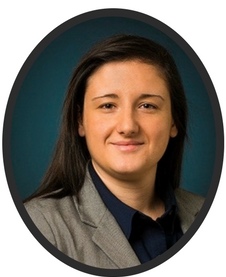By Arlinda Ruco
It has been almost five years since I last was a full-time student and graduated from my Master of Public Health degree. Like many of my peers back then, I wasted no time job-hunting, starting my first “real-life adult” job before I had even written my final exams. I still remember prepping for job interviews back then. I would go through and make sure I had an answer for all of the typical interview questions that I had compiled over the years including: 1) tell us a little bit about yourself and your background; 2) what attracted you to this position?; 3) what are some of your strengths and weaknesses?; and 4) tell us about a time when you had a conflict with another peer, how did you resolve it and what was the outcome? At the time, for the type of entry-level jobs I was applying to, this kind of interview prep was sufficient. However, now that my cohort of peers and I have gained extensive experience in the workforce, we are slowly making the leap to management positions and Director-level roles. As I sit back and reflect on how my interview prep has changed over the years – I thought I would share some of my own experience to provide other young professionals with some tips when making the jump to the Directors’ circle.
In preparation for my first Director-level interview, I first and foremost called upon many of the people who I consider to be my mentors. I picked their brain about what types of questions I could expect for an interview like this and how this would be different from the previous interviews I had had. In addition, I asked them to identify what they thought were my key strengths and why. With this information, I used my time to focus on the following:
- Strategic planning and vision – One of the main differences between a manager and Director-level role is the ability to have a vision of the department and narrative about the type of leader you are. Taking a look at the current mission, values and strategic plan of the organization and department is a good place to start. From there you can begin to build your narrative. What is your vision? How will it be aligned with the priorities of the organization? What are the opportunities for leveraging what has already been achieved and how can you take that one step further? Are there opportunities to collaborate with other key stakeholders? In addition, I would recommend you align your vision with the broader priorities that have been identified at the system-level. The context in which the organization works in is sometimes just as important as the priorities within the organization itself. Apart from having a strategic vision, you will also need to have a plan for how you will operationalize your vision. What will it take to realize it? What are some of your ideas for getting there? Be clear on your vision as it will say a lot about who you are as a leader and the type of influence you hope to have in the organization.
- Prepare for your presentation – Although some manager-level positions may ask you to prepare a presentation, most Director-level interviews will certainly involve preparing a presentation or something to that extent. The topic of the presentation may be given to you ahead of time or you may be asked to come up with something yourself. In addition, there may be parameters around the use of A/V, PowerPoint or other technology. A very useful piece of advice I received from one of my mentors was to cater to different learning styles when you present. This ensures that each member of the interview panel is engaged throughout your presentation and speaks volumes to your ability to prepare and adapt to your audience. For example, preparing a PowerPoint or providing a briefing note to go along with your presentation can cater to members of the interview panel who have a preference for learning new information visually or through reading. No matter which delivery method you choose, the final piece of advice would be to make sure you practice your presentation. The more you practice, the more confident you will be in the interview itself and the smoother your delivery will be.
- Ask Questions – This might seem very obvious, but you’d be surprised at how asking thought provoking questions back to the interview panel can make you stand out from other candidates. Apart from the typical questions regarding next steps in the interview process and when you can expect to hear back, think of questions that highlight your understanding of what the role entails. Use this as an opportunity to pick their brains about what they think might be the biggest challenges and opportunities for the successful candidate. If you have presented several innovative ideas for operationalizing your vision, ask them what stood out to them – using this as an opportunity to get feedback from the committee can mean that you can hit the ground running once you land the job.
It can be very easy to underestimate yourself when you have only been in the workforce for a couple of years. Women especially tend to hold off on applying for a particular job unless they believe they have most of the qualifications outlined in the role profile. However, I would urge you to step out of your comfort zone and throw your name in the hat. Even if you are not the successful candidate, it is a good opportunity to update your resume and brush up on your interview skills, show the organization that you are interested in growing and developing your career with them, and can provide you exposure to senior leadership whom you may not get the chance to work closely with on a regular basis. In addition, you might have the chance to receive some very valuable feedback that you can then take forth to your next interview.

Arlinda graduated from Queen’s University with a Master of Public Health degree in 2013. She currently works in Practice-Based Research and Innovation where she is responsible for designing, implementing and evaluating programs to build research and innovation capacity in point-of-care health professionals. She will begin her PhD studies in Health Services Research in September of 2017. To chat further, connect with Arlinda on LinkedIn.





